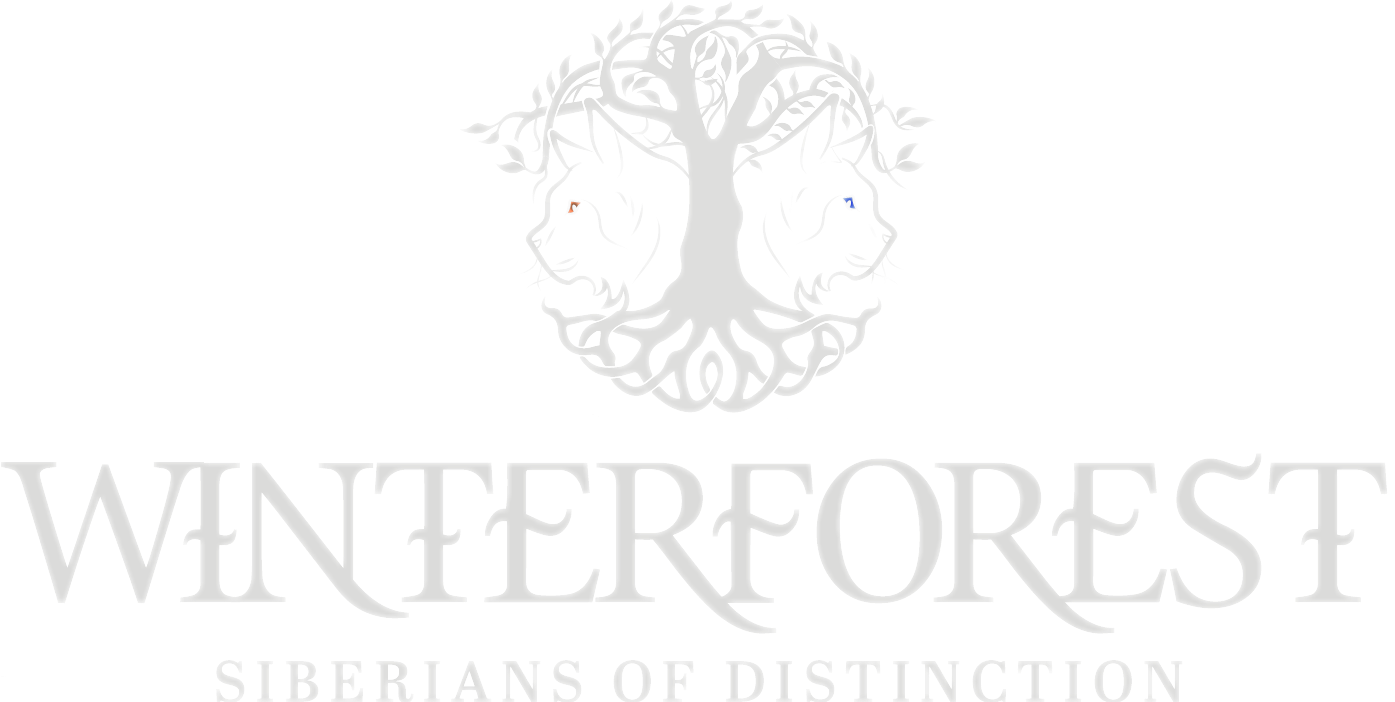What It Means to Be Registered: Why Ethical Catteries Like WinterForest Choose CFA & TICA
In the world of purebred cats, the word "pedigree" is often tossed around casually. But the reality is, only a small percentage of cats worldwide—fewer than 3%—are truly pedigreed and traceable through a recognised registry. The rest? Many are bred without oversight, accountability, or clear lineage.
At WinterForest Siberians, we are proudly registered with both the Cat Fanciers’ Association (CFA) and The International Cat Association (TICA). For us, registration isn’t about prestige or paper—it’s about transparency, responsibility, and a shared commitment to ethical breeding practices.
Why Does Registration Matter?
When a cattery is registered with CFA or TICA, it means they’ve agreed to abide by a defined code of ethics and breeding standards. These registries require:
Honest, traceable pedigree records
Commitment to preserving breed standards
Fair, humane treatment of breeding animals
A limit on how often and how early cats are bred
Oversight through show participation and peer review
It's the difference between being part of a regulated, recognised community versus operating in the shadows.
Registration also allows us to show our cats competitively, which helps maintain accountability in areas like health, temperament, structure, and genetic consistency. Without Registeration papers sent by an association it can be assumed that your cat/ kitten is not registered and may have come from a commercial pet farming facility.
Commercial Pet Farming
In some regions—particularly in parts of Asia—breeders may obtain commercial pet breeding licenses through agricultural or commercial departments. While this may sound official, these licenses are not conducive to the upbringing of companion animals. They are often structured for high-volume animal production, akin to livestock farming.
Internationally, this kind of breeding is increasingly frowned upon. It can prioritise numbers over wellbeing, and in many cases, has been associated with kitten mills, poor husbandry, and untraceable genetics. These farms cliam to have registeration papers but are unable to produce them. Registeration papers are always produced at no extra cost from an ethical cattery the most basic paperwork for regulation and accountability.
A Note on The Lucy’s Law Movement
In 2020, the UK passed Lucy’s Law, a landmark regulation that bans the third-party sale of puppies and kittens under six months of age. Named after a spaniel rescued from a puppy farm, the law reflects a growing global understanding: ethical breeding starts with direct, informed relationships between breeders and families.
Other countries, including parts of Europe and Australia, are moving in the same direction, encouraging a “breed-educate-home” model that promotes transparency and wellbeing at every stage.
How to Start the Right Way
If you’re considering adopting a pedigree Siberian kitten, the best first step isn’t a deposit or a reservation—it’s a conversation.
A responsible cattery owner will want to know about your lifestyle, your expectations, and your hopes for the relationship you’ll have with your future cat. At WinterForest, every match is the result of shared trust and thoughtful dialogue.
We’re here to guide you through that process—from understanding the breed, to preparing your home, to knowing what to expect in the years to come.
Why It All Matters
Being CFA and TICA registered isn’t a marketing point. It’s a reflection of the values we live by: accountability, transparency, and care. As breeders, we’re not just raising kittens—we’re raising lifelong companions. And that deserves nothing less than full integrity.
If you’re ready to learn more, or to begin the conversation about future litters, we welcome you to get in touch. The screening process is simple, respectful, and designed to help both sides feel confident.
Because when you choose a cattery, you're not just choosing a kitten—
you’re choosing the story that comes with it.

